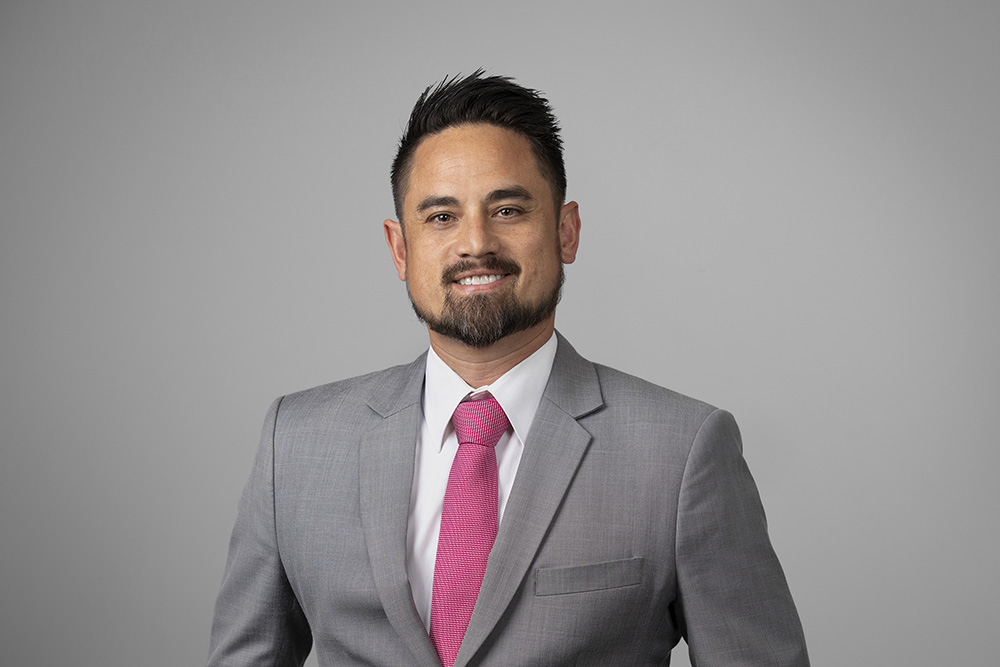Daniel Cheung was a financial adviser himself for 12 years, before moving into management five years ago and taking on the role of Head of Advice at EISS Super in March this year. In the six months Cheung has been at the helm, the fund has already implemented significant change in their advice area, and he hopes to continue to grow and expand EISS Super’s advice offering.
Can you briefly talk us through EISS Super’s advice model?
It’s a good question, because we have made some pretty significant changes over the past six months. We’ve always started from the position that all Australians, including our members, deserve to have access to quality financial advice at a reasonable price, and our goal has always been to tailor our advice offering to the needs of our members.
With that in mind, we’ve created a range of advice offerings, from simple and general, which doesn’t look at a member’s financial circumstances outside of their super fund, to more comprehensive, tailored financial plans. We’ve also refreshed our internal processes and systems to provide our advice offerings simply and cost effectively.
The next step was to review our fee structure, to ensure it aligned with our new advice offerings. What we understood was that if we wanted a long-term sustainable and high-quality advice offering, our cost structure needed to reflect that – we needed to charge enough to break even, but no more. We don’t seek to make profits from advice, but we do need to understand what the actual cost of providing high-quality advice at different levels is, so we can charge accordingly.
We’ve also started looking at additional services within our financial advice model – financial advice around aged care for example, and an enhanced personal insurance offer, as well as general financial literacy and education for younger members around managing cash flow and debt, and investing outside of super, for example.
How do you communicate with employers and members about financial advice?
The most effective communication talks to people in a way which they readily relate to and can understand easily. Our marketing team has done a lot of work over the past 12 months to make sure we are engaging with members in the way that most resonates with them.
We’ve always placed a high value on the personal connections our relationship managers forge with employers and members. Clearly the pandemic has put a bit of a spanner in the works for any face-to-face interactions, but previously they would travel all around NSW to talk to members, offering seminars and information sessions aimed at superannuation and investment generally, and outlining the ways in which EISS Super can help them with financial advice and other services. Often, it’s through the information provided by EISS Super client relationship managers that our members find out about the services we offer, and how to access financial advice through us.
At a more micro level, our financial planners communicate directly with members who have specific advice needs, and can provide advice face to face, over the phone and more recently via video conference which has been a real hit with clients. An additional initiative we’ve recently put in place is to offer advice over the phone from a specialist Superannuation Adviser at no additional cost to members. This advice is scoped to intra fund or general advice – and so far, we have found it answers most general enquiries, which are frequently around fund balances, asset allocations within portfolios or how market movements have affected balances. Where the superannuation adviser adds real value, and where we hope to grow this role, is as a triage specialist – talking to members about their needs generally, and then helping them to understand where they can access additional information or more tailored advice if they need it. We believe financial literacy and education around superannuation and other financial matters is a key variable in financial success.
Does digital technology play a big part in your financial advice model?
Well it does now! Actually, we were already focused on digital transformation as a fund and it was a central to our plans for our new financial advice model well before the pandemic hit. What COVID-19 did was significantly speed that process up. For example, we already had plans in place to introduce video conferencing but COVID-19 meant members who would normally have preferred face-to-face communication needed to make the change to engage digitally, and the good news is that most of them say they like it more than they would have anticipated. In fact, we asked our members whether they felt they were still getting the most out of their digital interactions with their financial planner, and the clear majority said yes, and were positive about the experience. One obstacle we have noticed during the pandemic is that members who haven’t seen a financial planner before are a little reluctant to have their first conversation digitally, whereas those who have seen an adviser already don’t have a problem with it.
At a transactional level, we’re using digital technology to replace many of the activities we used to do in person. We have developed a client portal which allows members to see their portfolio holdings and also sign advice forms and agreements. There are also calculators and other tools to encourage members to engage with their super and understand their position now. We have also created an online learning hub, ‘Money Matters’ which presents straightforward and jargon-free information about super and investments to help members build financial literacy and understanding.
What do you see as the main barriers to people getting financial advice?
It’s a good question, and one that highlights a challenge that super funds as well as financial planners have been trying to address for years. When ASIC asked this precise question in 2019, some of the reasons given were a perception that financial advice is expensive, or only for the wealthy, but there was also general distrust in the industry unfortunately. At the same time, Australians who had received advice tended to have a much more positive attitude towards financial advice – so the trick is to get more Australians quality financial advice.
What we have found is that all the reasons given to ASIC are reasons we also hear. The good news is that previous industry reform, including the recommendations from the Royal Commission which, if implemented, will introduce more safeguards and changes designed to increase confidence and trust, are already addressing some of the barriers. I would say that by far the biggest barrier is actually the individual if they haven’t received financial advice in the past. Because they don’t necessarily understand exactly what they would be getting, what value it might add or believe that it would be helpful to them they tend to be more ambivalent about advice then members who have had advice. We find that a good financial planner needs to be able to articulate the tangible and intangible benefits of advice in order to overcome these barriers and encourage members to take more control of their finances. We believe in transparency and always putting the client first in all decisions. Our planners are paid a fixed salary with no bonuses or incentives and are measured on a balanced scorecard approach. We feel this structure aligns well with our members and our own values as an organisation.
How has EISS Super dealt with early release of super, have you noticed an impact of COVID-19 on the uptake of advice?
Early release hasn’t been a big challenge for us so far. There are a couple of reasons for this – the first is that on average our member balances are higher than the average and the second, and arguably more importantly, is that most of our members work in industries which have been less affected by coronavirus. This means they are more likely to have kept their jobs and are
therefore in a better financial position.
We have communicated regularly with members about the consequences of withdrawing money early – what that would mean for their super balance over time, and what other options might be available – to make sure they are as fully informed as possible about the impact of any decision they make. We took the approach of being pro-active in talking to as many members as we could through the difficult times of market volatility and Covid-19, which allowed us to help many of them make good choices about their super.






